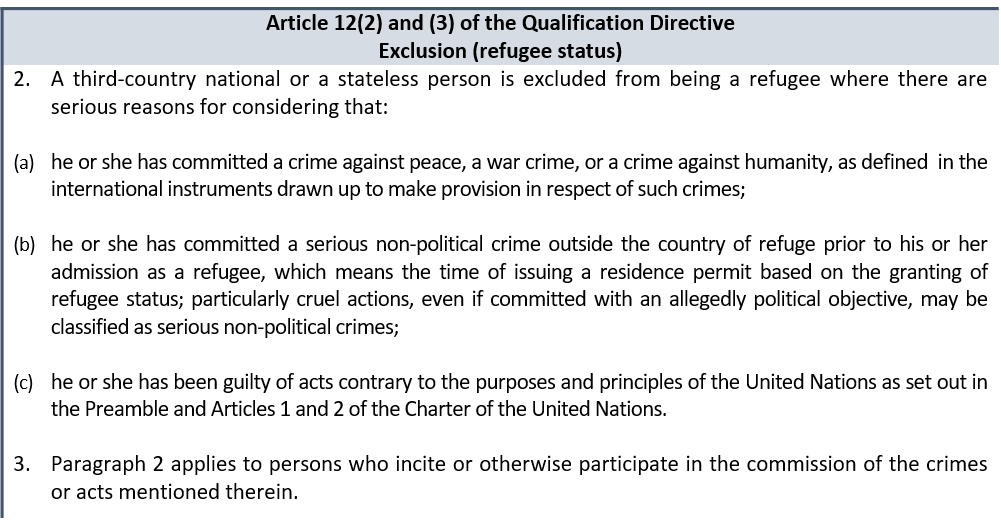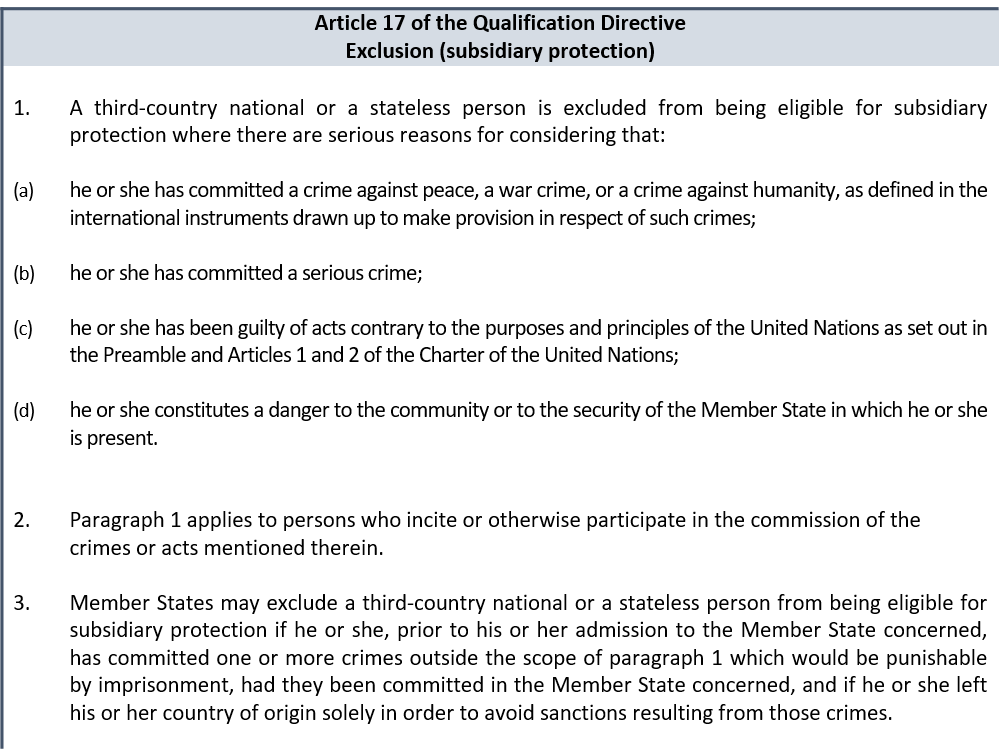Applying the exclusion clauses where there are serious reasons to consider that the applicant has committed any of the relevant acts, is mandatory.
This chapter focuses on the exclusion of applicants found not to deserve international protection in accordance with Article 12(2) QD and Article 17(1) QD.
If a person would otherwise qualify for refugee status, the following would constitute exclusion grounds, according to Article 12(2) QD:

If the person would otherwise be eligible for subsidiary protection, the exclusion clauses under Article 12(2)(a) and (c) QD would apply in the same way (Article 17(1)(a) and (c) QD, respectively). The ground of ‘serious crime’ (Article 17(1)(b) QD), on the other hand, is broader than ‘serious non-political crime’ and has no geographical or temporal limitations. Furthermore, additional exclusion grounds are envisaged under Article 17(1)(d) QD and Article 17(3) QD. Article 17(3) QD contains an optional provision and its applicability would depend on the transposition of this provision in national legislation.[48]

It should be underlined that the determining authority has the burden of proof to establish:

At the same time, the applicant has a duty to cooperate in establishing all facts and circumstances relevant to his or her application.
| -------------------------------------------------------------------------------------------------------------------------------------------- |
|
Given the serious consequences that exclusion may have for the individual, the exclusion grounds should be interpreted restrictively and applied with caution.
|
| -------------------------------------------------------------------------------------------------------------------------------------------- |
In the context of Nigeria, the need to examine possible exclusion issues may arise, in particular, in cases of applicants who may have been involved in the following:
■ armed conflict involving Boko Haram and the Nigerian security forces
■ crimes committed during violent clashes between herders and farmers
■ crimes committed by student cults and criminal gangs
■ crimes committed by trafficking networks
■ etc.
The Qualification Directive does not set a time limit for the application of the grounds for exclusion. Applicants may be excluded in relation to events occurring in the recent and more distant past. Relevant situations from the past could include, for example:
■ armed conflict (civil war) in Biafra in 1967-1970
■ coups d’etat and military regimes in 1966-1979 and 1983-1998
■ etc.
In relation to potential exclusion considerations, see also the chapters Actors of persecution or serious harm and Analysis of particular profiles with regard to qualification for refugee status.
| -------------------------------------------------------------------------------------------------------------------------------------------- |
| The examples mentioned in this chapter are non-exhaustive and non-conclusive. Each case should be examined on its own merits |
| -------------------------------------------------------------------------------------------------------------------------------------------- |

